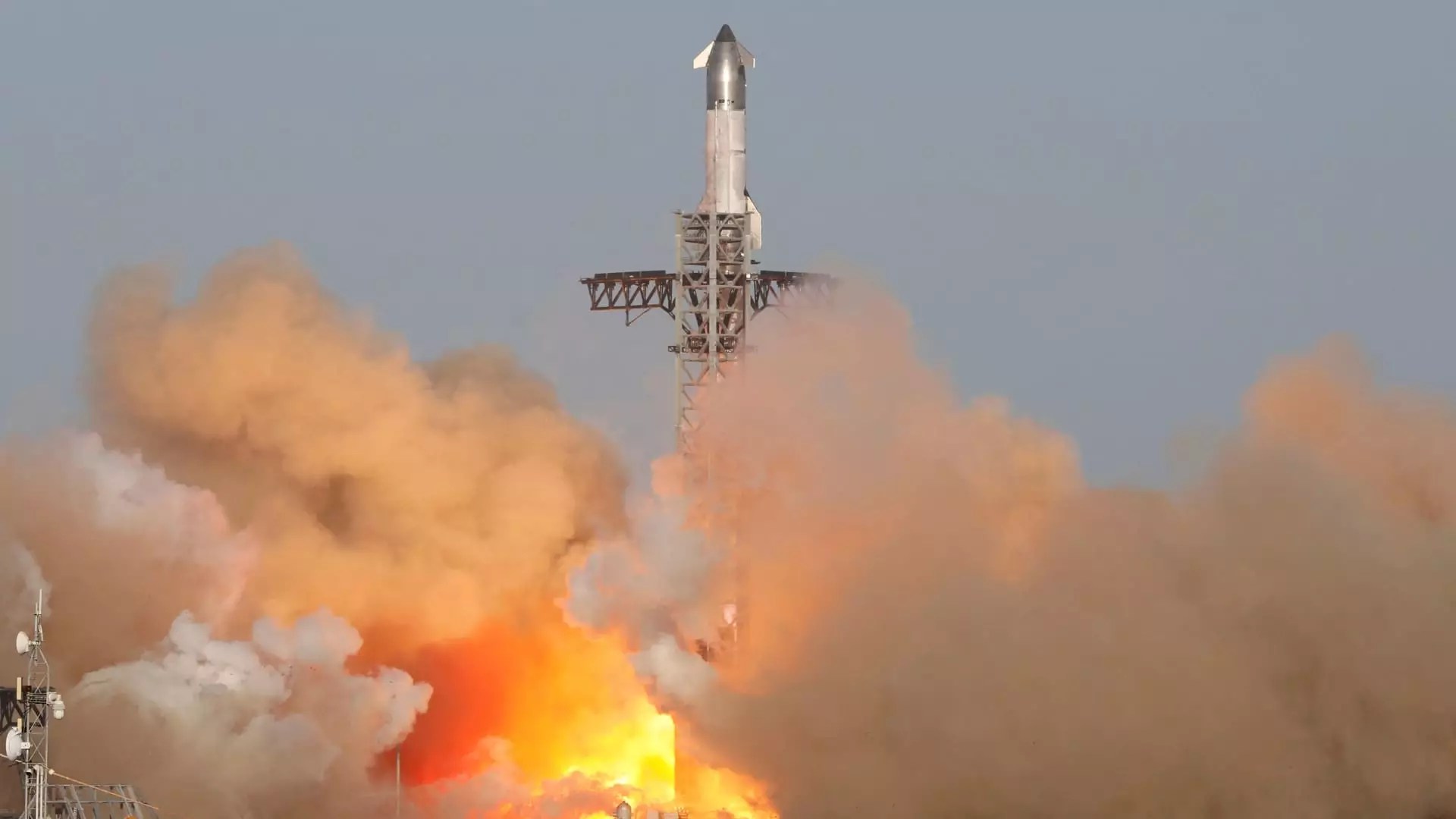In the feverish pursuit of commercial space travel, we find ourselves struggling to balance innovation and safety. SpaceX, a beacon for aspirations of interstellar exploration, recently faced a significant setback with its Starship testing – a failure that forced a brief halt to flights at several Florida airports. This incident, the second of its kind in 2023, raises critical questions about the accountability and regulatory oversight of aerospace endeavors. As the boundaries of space exploration blur with commercial interests, we must contend with the potential fallout of such failures. The consequences are not merely operational inconveniences but pose real safety risks in an already crowded airspace.
Flawed Execution: A Pattern of Mishaps
It is alarming that SpaceX has experienced multiple failures in a short timeframe. The latest incident resulted in debris raining down on Florida, forcing the FAA to activate a Debris Response Area and disrupt air travel for ordinary citizens. The notion that we are experiencing a ‘rapid unscheduled disassembly’ – a euphemism for malfunction – is a chilling example of just how much regulatory oversight can falter when the frontiers of technology are pushed without adequate caution. SpaceX’s founder, Elon Musk, is not only an eminent entrepreneur but also closely tied to political circles. His close relationship with Washington raises concerns that the space race might overshadow crucial aspects of public safety.
Yet, incidents like these manifest as stark reminders that, despite its technological prowess, SpaceX is still grappling with fundamental issues of reliability and oversight. With commercial aviation, private planes, and the burgeoning space industry competing for airspace, it’s essential that we do not prioritize ambition over precaution. In a state of heightened risk, a company’s evalution of its own mishaps, while necessary, should not overshadow the culpability necessitated by regulatory bodies.
Clarity in Investigations: The FAA’s Role
While the FAA has initiated a mishap investigation following this latest failure, one cannot help but question the timing and efficacy of such oversight. Why was SpaceX allowed to conduct the eighth test flight prior to concluding previous investigations? The clash between corporate self-interest and regulatory caution appears more pronounced when we consider the regulatory allowances granted to SpaceX amid ongoing safety inquiries. This raises fundamental issues regarding the effectiveness and independence of the FAA.
SpaceX is perceived as a pioneering force, but this must not come at the cost of transparent regulatory enforcement. The FAA’s responsibility extends beyond merely reacting to incidents; it is imperative that the agency proactively enforces measures that ensure safe practices in this burgeoning industry. With public safety at risk, the importance of implementing stringent checks and balances cannot be overstated.
Elon Musk’s Influence: A Double-Edged Sword
Musk’s influence extends beyond just innovative technology; he plays a pivotal role in shaping regulatory policies as a senior advisor to the Trump administration. His intimate involvement in both the private sector and regulatory frameworks raises eyebrows among critics cautioning against potential conflicts of interest. These dual roles necessitate scrutiny; when an individual at the helm of a company has a direct line to decision-makers in government, we must question the integrity of decisions made for the greater good versus those made for corporate gain.
Such entanglements could pave the way for regulatory capture, where the agency meant to oversee an industry ultimately becomes overly lenient in the interests of the company. As the space industry evolves, it is crucial that regulators remain steadfast, maintaining an impartial stance to prioritize public safety over corporate ambition.
A Call to Action: Bridging Innovation with Responsibility
SpaceX’s ambition to advance human space travel is commendable, but we must reinforce the tenets of safety and accountability. The implications of non-compliance, lax oversight, and corporate governance must resonate far beyond the corporate boardroom. As stakeholders in the aviation industry, both commercial and in their personal travels, people expect their safety to be paramount; it is time for SpaceX and similar companies to align operational innovation with stringent safety measures.
Let us laud ambition, but let us not forsake accountability. In the quest for the stars, adherence to rigorous standards should never take a backseat. As society stands on the brink of a new frontier, it is imperative that we glean lessons from these missteps and advocate for robust safeguarding mechanisms to ensure that the pursuit of the unknown does not compromise the safety of those who occupy our skies.


Leave a Reply